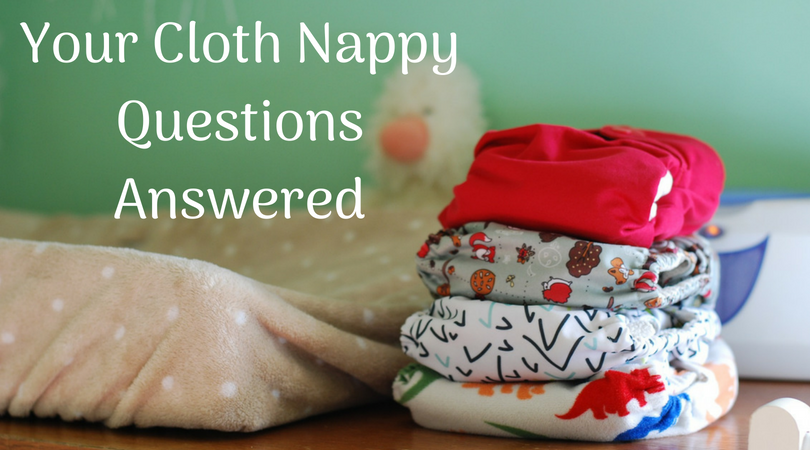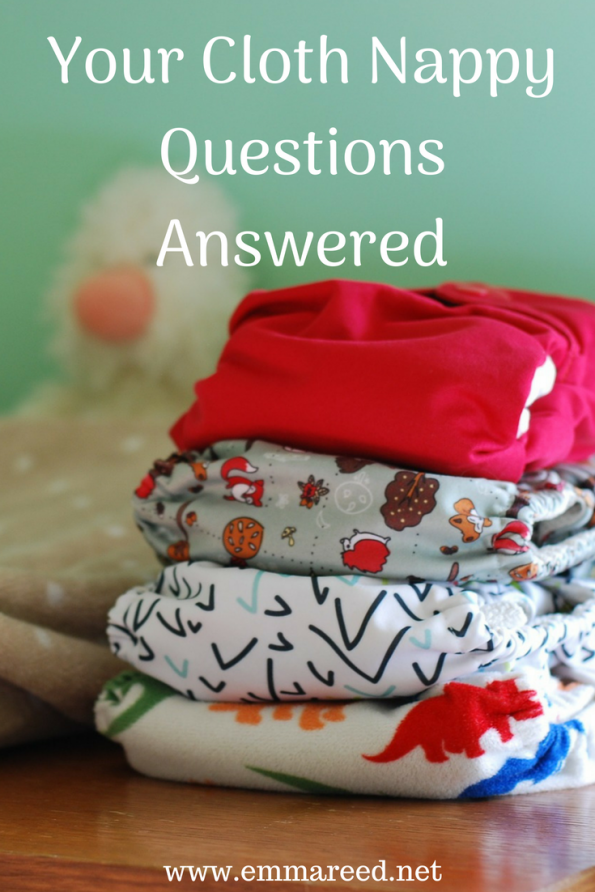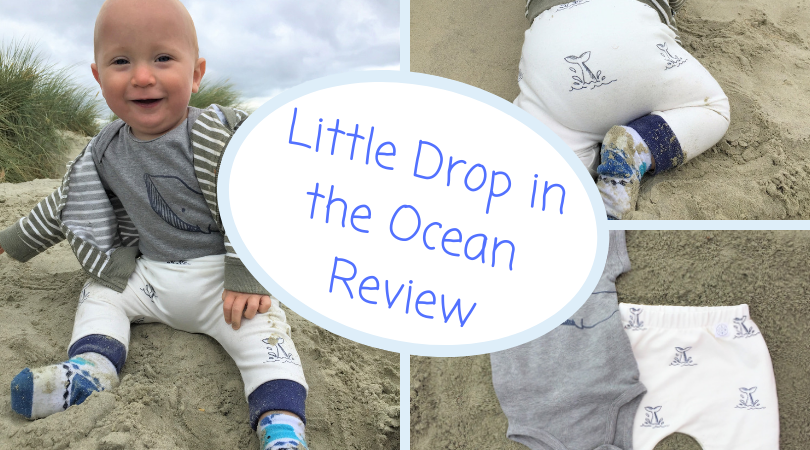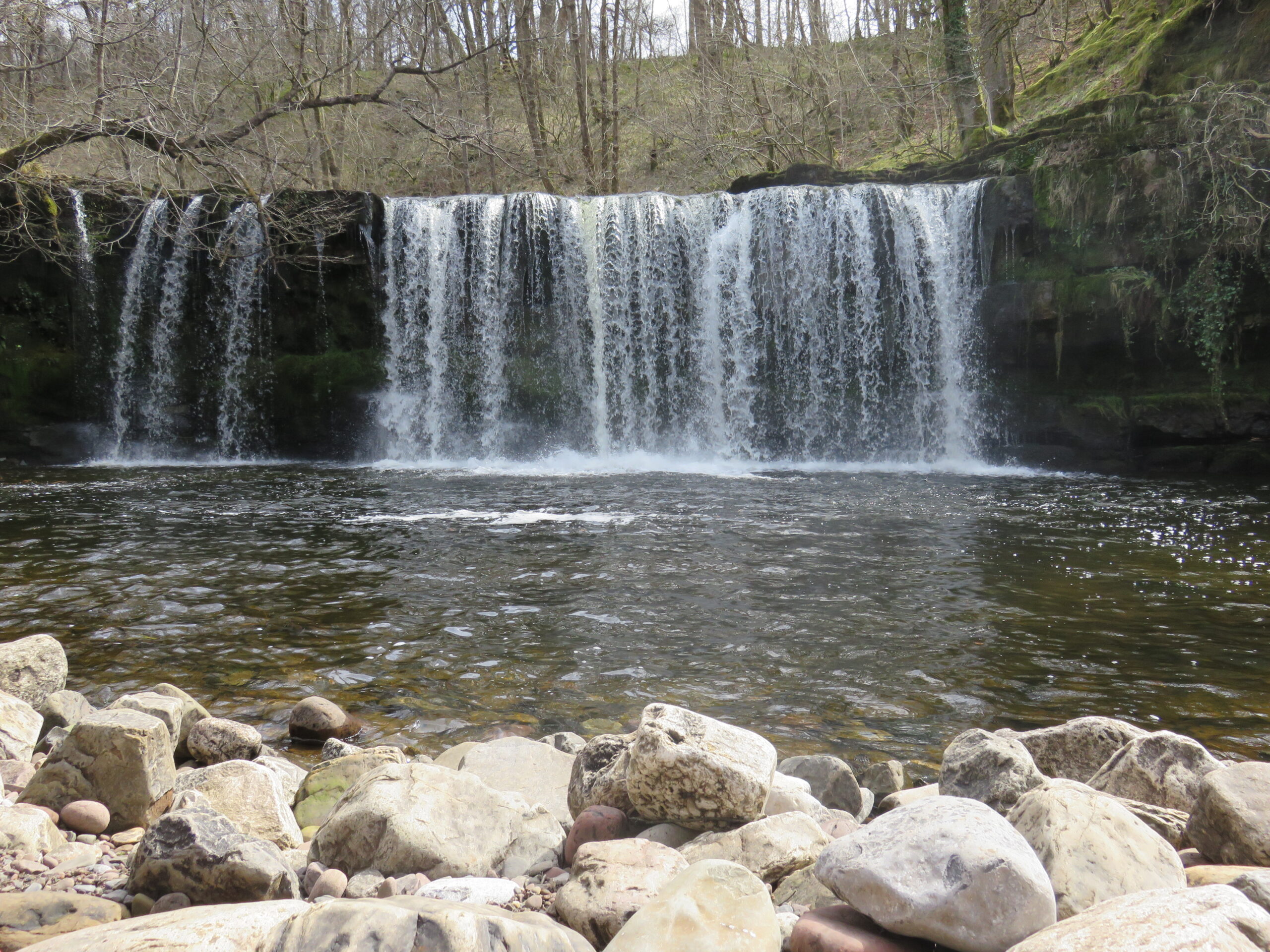
Your Cloth Nappy Questions Answered

*Affiliate Links
Changing to cloth nappies has been a really positive move for us as a family. Not only are we reducing our waste and helping the environment, we are also saving money and in a year this could even amount to as much as £500! Children cost enough money as it is and I would rather spend those vital pennies on a day out than on something that will end up in a landfill.
Since writing about the change, I have been asked quite a few questions about how they work, what they are like, how washing impacts on my week and so on, so I thought the best way to help would be to answer all of these in one place.
However, I am by no means an expert just yet. We have only been doing this for a short time and I have only tried three brands in all (I now have my favourite for day and for night) but I think once you work out which style of nappy works for you and which routines work the best for your household and your child, you can have it cracked in no time.
So, on with the cloth nappy questions…
All cloth nappies are so expensive
Ok, so more of a common statement rather than a question but it is one I want to cover. Yes, to start out it will cost you quite a bit of money because you need to get a good stash before you can go to cloth full-time. It may seem easy to pop to the supermarket and spend what? £5-£10 on a packet of disposable nappies but how many times a week are you doing this? I wonder if you are brave enough total it up after a month?… I wasn’t! I didn’t want to know how much money I had spent on an item that ends up in the bin.
You can purchase cloth nappy starter bundles from probably every brand out there which will provide you with all you need to set yourself up. Once you have your perfect collection (which will become addictive!) you won’t ever have to pay out again… well, until you find a new design has been released and you just have to have it!!
I could go into all the costs, but luckily Baba and Boo have done this for you and laid it all out for you to clearly see here.
“You buy all the reusable nappies you’ll need up front. They cost you £195.
You buy all the disposable nappies you’ll need upfront. They cost you around £1,000.”
Baba and Boo
If you’d like some tips on how to cloth nappy more affordably, head over to this post here.
Aren’t cloth nappies bulky and fiddly?
No. Nowadays, cloth nappies are slimmer, stylish, functional, absorbent and easy to use. Yes, they are a little bulkier than disposables but it is something you just get used to seeing and finding clothing to fit over the top isn’t that hard. If you need to go up in size in some items to accommodate the fluffy bum then that is a simple fix AND I have even heard of more brands taking this into consideration when designing their clothing due to the increase in cloth nappy usage.
It is easy to hear the words ‘cloth nappies’ and envisage a baby wearing a bulky terry towel nappy fastened with a safety pin but those days are long gone. Brands these days offer velcro or poppers which easily adjust and allow the nappy to grow with your child.
Don’t they give your baby nappy rash?
No, and some parents actually claim the opposite; that they help to prevent nappy rash. Cloth nappies are natural. They do not contain any plastics, chemicals, linings containing materials which claim to draw more urine away and prevent rashes from occurring as disposables do. If you change your baby regularly you will quickly see that nappy rash rarely happens. You can help even further by using reusable wipes with warm water too. No chemicals, no added scents, no creams (you cannot use creams with cloth nappies) just natural, easy, free solutions.

What should I go for first?
To begin with, do your research. The Nappy Lady website is brimming with information as well as a questionnaire for you to complete in order to discover what your needs are when it comes to finding the right nappy for your family. Also, speak to friends who are already using them, check out groups on Facebook and read reviews. Your baby/child will have different needs to others so you need to get the most suitable nappy for them. I personally started with an all in one nappy from Bambino Mio because it was straightforward and I didn’t need to think about extra bits or wraps etc. I was then told about Baba and Boo by a friend with a baby of a similar age to my son so I gave those a go too and I love them, so these have become my go-to brand. One of the best things about the cloth nappies is that they don’t really lose their value, so if you don’t get on with one brand, you can always sell it on and spend your money elsewhere.
Aren’t they complicated?
This is probably a cloth nappy question that I am asked a lot and the simple answer is no. I think the complicated bit is actually getting your head around all of the terms which makes it sound a bit daunting at first. The nappies themselves are not at all complicated but if you want an easy first nappy, as I mentioned above, go for an all in one. Otherwise, look for your local nappy library and gain some expert advice and have a look, feel and try with the nappies they have in their stock.
I don’t get the terms
Nope, neither did I and I still see some things come up in Facebook groups which throw me! So, here are the basics:
All in one- an all in one nappy which has the insert sewn in. The entire nappy is all you need. Change entire nappy with each bum change.
Pocket nappy- It is a nappy with a separate insert that you place inside a pouch or pocket.
All in two- The nappy has two parts, the outer and the insert which poppers inside.
Two-part nappy system- This is where a cloth nappy is worn underneath a wrap. See next term.
Wrap- This is a waterproof wrap which is used over the top of a non-waterproof nappy. The nappy takes all of the urine so you will remove this at bum change but can re-use the wrap until you think it needs changing (from smell, wet etc)
Liner- The liner is available to purchase to basically line the nappy and catch the poo. You can get reusable fleece ones or disposable material ones (often state they can be flushed but please don’t do this).
Booster- This is an extra insert in order to boost the absorbency of the nappy. You will need these depending on what nappy you use overnight and if you have a heavy wetter.
Wetbag- This is a waterproof bag you take out with you in your changing bag to put your soiled nappies in.
Don’t you have to spend a lot of time soaking them?
No, not at all. The modern cloth nappies do not generally require any soaking like old-style terry towels once needed. As long as you remove as much poo as you can and discard this down the toilet, they are fine to go straight into your washing machine.
Ewww, but what about touching the poo?!
I promise that cloth nappy parents do not touch poo any more than disposable nappy parents do. As parents we all experience a bit of poo on our hands at some point, don’t we? When your baby has a poo explosion and it somehow gets all up their back, down their legs, all over every item of clothing, how do you go about cleaning that up? Bit of a mess isn’t it? If you can touch this, if you can wipe your baby’s bum or your toddlers bum you can easily deal with a cloth nappy with poo. As I said above, you can buy liners which help to remove it. This will catch the poo and if solid, you can easily tip it down the toilet, if it isn’t you can either use toilet tissue to wipe it off, hold it under the water as you flush the toilet or rinse in the sink. I rarely use liners, yet I haven’t had much of an issue with removing the poo from the nappy. I have also found that by swapping to cloth wipes, the poo comes off your baby’s bum much quicker and easier and where it used to take about 4 disposable wipes to fully clean all areas, it only takes one cloth wipe. Oh, and those dreaded poonami’s are a thing of the past when you make the swap, just another good reason to change.
Where do you put the dirty ones?
The dirty nappies can be put into a laundry bag and into a nappy bucket. Anything that has a lid will do to keep the smells out and they can stay in here for a day or two before you put them on to wash.
How do you wash them?
In the washing machine altogether and with your reusable wipes too. Remember to do up all of the fastenings to protect them and their components.
It is advised that you do a quick pre-wash or cold wash or rinse just with water in order to clear away the waste and then pop them on a 40° or 60° wash (depending on stains and age of your child. Under 3 months you will need a 60° wash) with non-bio washing powder. You don’t need conditioner as this will affect the nappies absorbency (like with bath towels).
To dry them, the best way is to pop them out on the line or air dry in your home either in a room on clothes dryers or over the bath. You can also choose to place them next to an Aga or on a radiator (although this may harden them). Tumble dryers will do the job quicker BUT it will also reduce the life of the nappy so it isn’t recommended.

How do I deal with stains?
Staining can occur due to heavy wetters, an unwell baby and those breastmilk poos. As long as the nappy is clean, the stains aren’t really something to worry about. However, a 60° wash should be enough to help but if it isn’t, leaving them out in the sun is the best tip I have heard. The sun naturally bleaches the nappy to remove the stain and best of all, it’s free! The cold rinse in the washing machine prior to doing the wash should also help to loosen stains.
What do I do when I am out?
You change your baby as normal and place the soiled nappy into a wetbag which will keep the smells in and protect everything else you have in your changing bag. Once home you can put the whole thing into the wash or place it in your nappy bucket.
I think I have covered everything and I know there are probably far more myths that need busting but if you have more questions please do leave me a comment and I will try my best to answer them.

*This post contains Amazon Affiliate links. For further information please refer to my disclosure page.
Pin for later:





